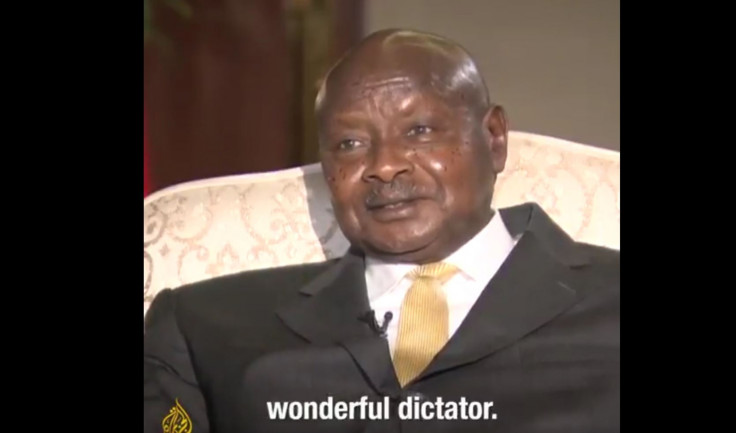President Yoweri Museveni says he must be a wonderful dictator – elected five times
Interview has sent social media into overdrive as Ugandan president talks of his legacy.

A recent interview of Ugandan President Yoweri Museveni with Al Jazeera TV channel has been trending on social media after the head of state, who was elected for the fifth time in February last year, was asked whether he considered himself a dictator.
While the opposition condemned Museveni's victory in the 18 February 2016 elections, Uganda's ruler rejected fraud claims and celebrated three decades in power. In November 2016, Human Rights Watch condemned Uganda's damning human rights record as it claimed torture and state oppression is rife in the East African nation.
In the interview he gave to Al Jazeera's Mohamed Vall during a visit to Qatar, in which he discussed a range of issues, Museveni was asked how he would guarantee he would not be remembered as a dictator instead of a democratic president.
He said: "A dictator who is elected five times – that must be a wonderful dictator. That must be a special one. Elected five times with all this big majority."
A snippet of Museveni's response started trending on social media, including Twitter and Facebook, after the interview was aired on 29 April.
Twitter user, @InspironMark, described Museveni's comment as a "classic Museveni answer with lots of confidence", @abdelfadili referred of the head of state as "Museveni the marvellous dictator".
@BinodDhakal75, meanwhile, joked: "How to become a good dictator? 1) Keep the generals happy and entertained, 2) Manipulate the elections, 3) Keep people in fear #Museveni #Uganda".
Museveni : "A dictator voted in 5 times, must be a special dictator." @AJEnglish 😅😅😅 https://t.co/juuD6Ntf1o
— Shinta ambrose (@shiambro) May 2, 2017
Opposition parties have only been allowed to exist legally in Uganda since 2005, and violence and intimidation have marked most elections – including the 2016 poll.
Museveni's promotion of his eldest son as a special presidential adviser earlier this year was described as a further indicator that Muhoozi Kainerugaba, is being groomed for the top seat in an attempt by Museveni to set up a "political dynasty".
The proliferation of these human rights desks did not hinder obvious police violence and repression during the run-up to and during the February 2016 election, when police tear-gassed and beat journalists and opposition supporters.
The state shut down social media for five days to muzzle critical voices during the elections – a move described as not free and not fair by local observers.
© Copyright IBTimes 2025. All rights reserved.






















